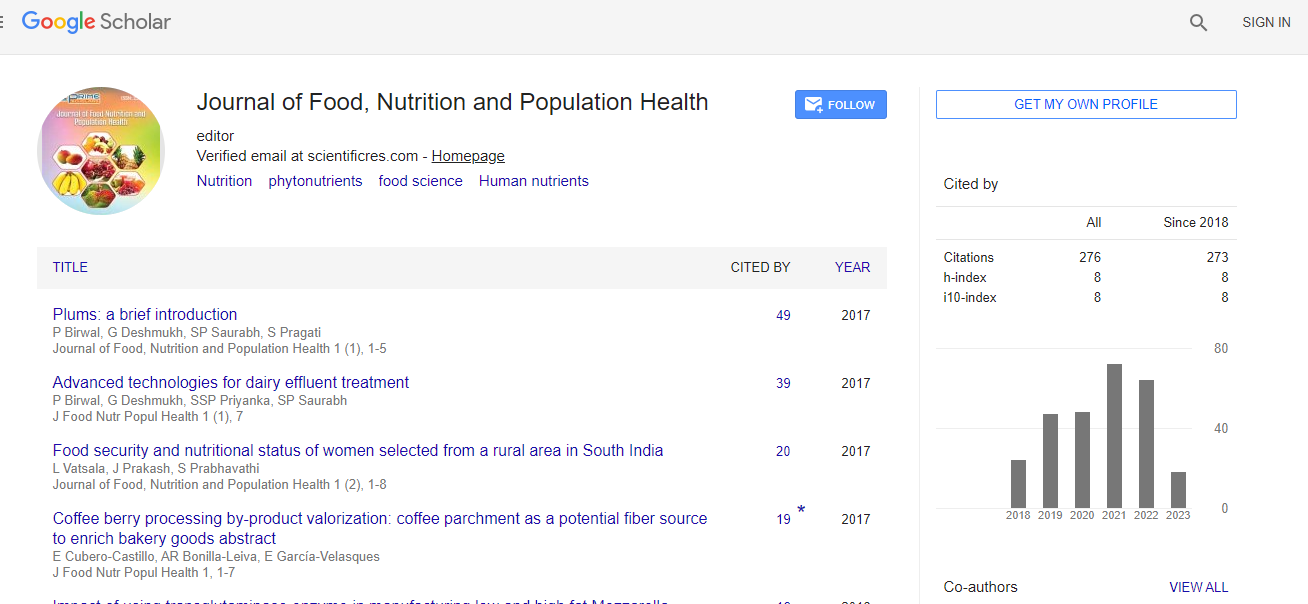Commentary - (2024) Volume 8, Issue 1
Understanding Poverty: Causes, Effects, and Solutions
Nao Muizuki*
Department of Human Sciences, Kyoto University, Japan
*Correspondence:
Nao Muizuki,
Department of Human Sciences, Kyoto University,
Japan,
Email:
Received: 28-Feb-2024, Manuscript No. IPJFNPH-24-19931;
Editor assigned: 01-Mar-2024, Pre QC No. IPJFNPH-24-19931 (PQ);
Reviewed: 15-Mar-2024, QC No. IPJFNPH-24-19931;
Revised: 20-Mar-2024, Manuscript No. IPJFNPH-24-19931 (R);
Published:
27-Mar-2024, DOI: 10.21767/2577-0586.8.01.02
Description
Poverty is a complex and multi-dimensional issue that affects
millions of individuals and communities worldwide. It is often
defined as a condition characterized by a lack of resources
necessary for basic living standards, including food, shelter,
clothing, and access to essential services such as healthcare
and education. Poverty can manifest in various forms, including
absolute poverty, where individuals lack the basic necessities
for survival, and relative poverty, where individuals experience
a lower standard of living compared to the rest of society.
Economic inequality, lack of employment opportunities,
low wages, and inadequate access to financial resources
contribute significantly to poverty. Structural issues such as
unequal distribution of wealth and resources exacerbate
economic disparities. Discrimination based on factors such as
race, ethnicity, gender, and disability can perpetuate cycles
of poverty by limiting access to education, employment, and
social services for marginalized groups. Political instability,
corruption, and inadequate governance can hinder economic
development and exacerbate poverty by diverting resources
away from essential services and infrastructure projects.
Natural disasters, climate change, and environmental
degradation can disproportionately impact impoverished
communities, leading to loss of livelihoods, displacement, and
increased vulnerability to food insecurity and disease. Poverty
is closely linked to poor health outcomes, as individuals living
in poverty often lack access to adequate healthcare services,
nutritious food, and safe living conditions. This can result in
higher rates of malnutrition, infectious diseases, and chronic
health conditions among impoverished populations. Poverty
can hinder access to quality education due to barriers such as
lack of school infrastructure, resources, and parental support.
This perpetuates intergenerational cycles of poverty by limiting
opportunities for social mobility and economic advancement.
Poverty can lead to social exclusion and marginalization,
as individuals and communities lacking financial resources
may face stigma, discrimination, and limited participation in
social, political, and economic activities. Persistent poverty
can hinder economic growth and development by reducing
productivity, limiting consumer spending, and undermining
social cohesion. High levels of poverty can also lead to social
unrest and political instability, further exacerbating economic
challenges. Efforts to reduce poverty must address underlying
structural inequities, including economic, social, and political
barriers to opportunity. This may involve implementing policies
to promote income equality, improve access to education and
healthcare, and combat discrimination and social exclusion.
Investing in education, skills training, and healthcare can
empower individuals and communities to break the cycle
of poverty by enhancing their human capital and economic
potential. Programs that provide access to quality education,
vocational training, and healthcare services can help equip
individuals with the tools they need to succeed. Sustainable
economic development initiatives, including job creation,
small business development, and investment in infrastructure,
can stimulate economic growth and create opportunities
for income generation and poverty reduction. Establishing
social safety nets such as cash transfer programs, food
assistance, and healthcare subsidies can provide temporary
relief to individuals and families living in poverty while also
promoting social inclusion and resilience. Poverty is a complex
and multifaceted issue with far-reaching implications for
individuals, communities, and societies. By addressing the root
causes of poverty and implementing comprehensive strategies
to promote economic opportunity, social inclusion, and human
development, we can work towards building a more equitable
and prosperous future for all.
Acknowledgement
None.
Conflict Of Interest
None.
Citation: Muizuki N (2024) Understanding Poverty: Causes, Effects, and Solutions. J Food Nutr Popul Health. 8:02.
Copyright: © 2024 Muizuki N. This is an open-access article distributed under the terms of the Creative Commons Attribution
License, which permits unrestricted use, distribution and reproduction in any medium, provided the original author and source
are credited.

